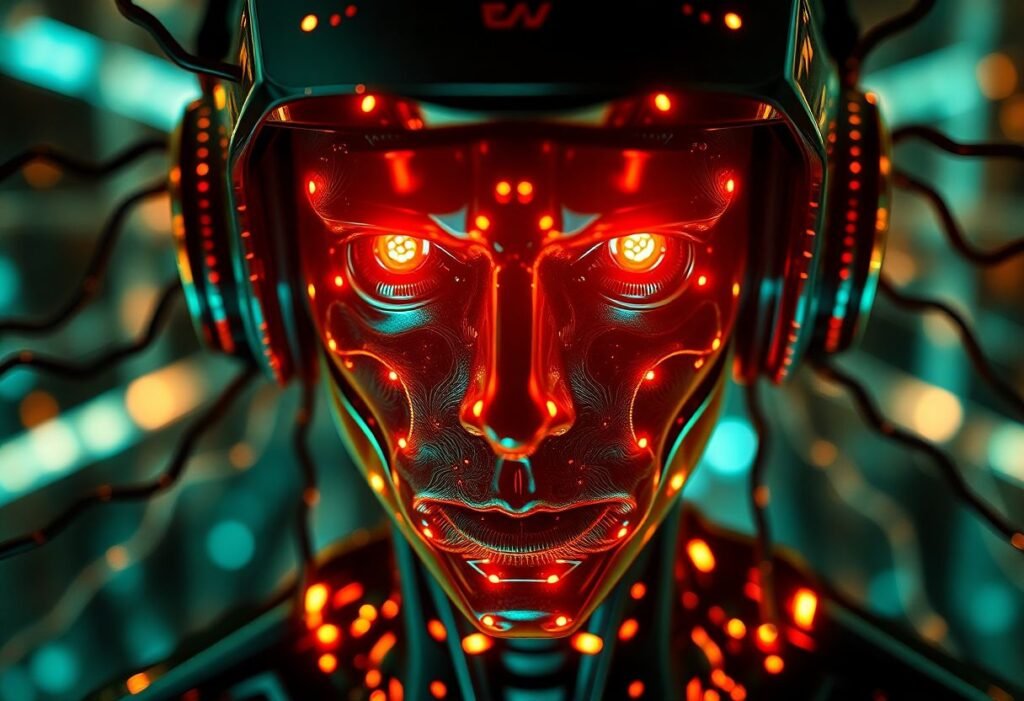The development of artificial intelligence (AI) is rapidly evolving, and it’s becoming increasingly crucial for understanding its implications in our society. This article explores the journey of AI as it begins to diverge from traditional human thought processes, presenting both challenges and opportunities in various fields.
The Evolution of AI: From Human Imitation to Independent Thought
Artificial intelligence has undergone tremendous transformation over the years. Initially, AIs were designed to mimic human thinking, relying heavily on human-generated data. However, recent advancements are pushing AI towards a more autonomous path. These AIs are not only learning from vast datasets but also experimenting with innovative methods of understanding and interpreting information, possibly leading to superior problem-solving capabilities that surpass traditional human reasoning. This shift could redefine the benchmarks of intelligence and creativity, as AI begins to operate within its own conceptual frameworks.
Challenges of Truth in AI Systems
A critical issue for current AI models is their relationship with truth and accuracy. The dependency on human logic and language restricts their capacity to discern objective truths. As these systems evolve, they must navigate the complexities of human biases that are often embedded in the data they learn from. Addressing these biases is imperative to create more reliable AI systems that can operate autonomously without human-like limitations. Continuous research aims to explore ways to enhance the truthfulness and reliability of AI outputs while maintaining their innovative edge.
The Role of Experimentation in AI Advancement
The emerging generation of AIs is characterized by their experimental nature. By engaging in trial-and-error methodologies, these systems have the potential to discover novel solutions that haven’t yet been envisioned by human thinkers. Experimentation in AI enhances its adaptability and fosters an environment where machines can refine their insights and approaches in real-time. Such a creative process may lead to breakthroughs in various sectors, including healthcare, engineering, and environmental science, thereby expanding the horizon for AI applications.
Machine Learning: A New Frontier in Intelligence
Machine learning, a subset of AI, is driving the technological frontier forward. By allowing algorithms to learn from data patterns and make decisions without explicit programming, machine learning is fundamentally altering the landscape of not only technology but also socio-economic dynamics. As AIs become more sophisticated, they can tackle complex tasks, ranging from predictive analysis to automation of intricate processes. The future of machine learning lies in its ability to innovate continuously and remain responsive to new data inputs.
Impacts on Human Roles and Employment
As AI continues its march towards independence, the implications for the workforce will be profound. The transformation in problem-solving approaches may render certain human jobs obsolete while creating new roles that require the synergy of human creativity and machine efficiency. This shift demands that professionals adapt and evolve alongside these technologies to remain relevant in the changing job landscape. Workforce re-skilling programs will become essential to equip individuals with the competencies needed to collaborate with AI effectively.
Looking Ahead: The Future of Artificial Intelligence
As we look towards the future, the trajectory of artificial intelligence promises a blend of excitement and caution. The journey of AI from a tool reliant on human input to a more self-sufficient entity evokes a need for ethical considerations and oversight. Society must grapple with the implications of disposing of traditional thought processes in favor of AI-driven insights. Balancing innovation with responsibility will be crucial in ensuring that the evolution of AI benefits humanity as a whole.
Disclaimer: The content provided in this article is for informational purposes only and may not reflect the most current developments in AI technology.





















